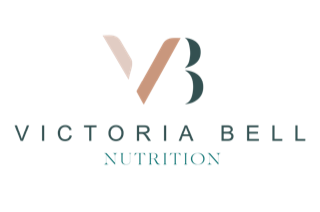Every season seems to bring some particularly persistent bugs – flu and flu-like viruses that keep coming in waves, chest and throat infections, nasty sickness and tummy bugs. Even with a well-balanced diet, and seemingly doing all the right things to stay well, even the healthiest of individuals can be knocked off their feet!
Why do I keep getting sick?
Sure, you might get caught up in a bit of indulgence from time to time, including more alcohol consumption than normal. But it can be really frustrating to find yourself going down with yet another bug and getting sick every other week when you’ve barely recovered from the last one. What could be going on?
It helps to understand a bit about how the immune system works
You have numerous lines of defence all working in concert to protect you from getting ill. We produce a few different types of proteins called immunoglobulins and each type has a different job to do. Some of these, called Immunoglobulin A (IgA) are dispersed in bodily fluids such as your saliva and tears. IgA provides a first line of defence, potentially killing off anything unfamiliar that it comes into contact with, preventing it from going any further into the body.
IgE is better known for allergic reactions and potentially parasitic infections, while IgG is released in response to many of the foods you eat. However, IgG has a modulating effect, meaning that it’s presence doesn’t necessarily indicate an intolerance, IgG is there to help keep your immune system in check and to curb excessive immune reactions.
Then you have a whole host of different types of white blood cells. Some of these act quickly without having any specific knowledge of the material or organisms (living things such as viruses) that they are attacking.
Other white blood cells have a memory of a particular protein pattern (an antigen) found on the surface of a particular microbe or food molecule and will always start an immune reaction or an inflammatory cascade whenever they detect that same antigen in your system. This is the mechanism associated with auto-immunity, when your immune system sees protein patterns in something unfamiliar which are similar to protein patterns in some of your own body tissues and therefore your immune system will start to attack tissues such as joints, blood cells, or your digestive tract.
What to consider when your immunity is low
Certain foods or physical states will work to unbalance your immune system, triggering inflammation and keeping it busy so that when a bug comes along, you don’t have the reserves available to fight it. The following can overstimulate or suppress immunity:
Alcohol
You may notice that if you have a head cold, your runny nose stops for a while when you have consumed alcohol. This is because in the short term it turns part of your immune system off which may seem pretty convenient (please don’t drink alcohol to reduce your cold symptoms!) but whilst your immunity is suppressed, infective agents can actually take more of a foothold in your system, delaying how long it takes you to shake off illness.
Sugar
Spikes in blood sugar can in part trigger an inflammatory effect in your body. So if you are consuming lots of it or quite frequently, you will be in an inflammatory state more often. You need inflammation to repair injuries and to fight infections, but if inflammation is also happening excessively in response to what you eat, your defences will be depleted and ineffective when you need them.
Inflammatory foods
While some people seem to have stomachs of steel and can tolerate every food under the sun, many people may be sensitive to the inflammatory effects of some foods. There is a long list of qualities in foods that may trigger an immune response in susceptible individuals. Proteins can be a big trigger if they are picked up by the immune system, for example in milk, nuts, egg or gluten. Compounds such as lectins, oxalates, salicylates or histamine may also be involved. In conditions such as eczema, asthma, acne and polycystic ovarian syndrome, certain inflammatory fats can worsen symptoms, meanwhile distracting your immune system from protecting you from infections.
Inadequate nutrition
For example lacking or having an increased requirement for dietary nutrients needed to support immune function such as protein, vitamin C, zinc, magnesium and B vitamins. Often people on a restrictive diet or consuming more processed foods and less whole natural foods can fall short of many vitamins, minerals, good fats, protein or even simply adequate energy!
Dehydration
Water is needed to help release energy needed for all the hundreds of chemical reactions that are constantly occurring in your body. These include transporting vitamins and minerals to the organs and tissues that need them for repair, creating more immune cells and so on. You also need water to flush unwanted materials (including bacteria and viruses) out of your body.
Exercise
When you exercise, it is normal to have some inflammation to encourage repair of muscles. And rest after exercise is when the magic happens, we repair and build muscle tissue. But excessive exercise with inadequate rest can impair immunity and contribute to susceptibility to colds.
Cortisol
The stress hormone. You need cortisol to get you up and going in the morning, it also stimulates your thymus gland which helps regulate your immunity. If you don’t have a good cortisol spike in the morning, people with autoimmune conditions such as rheumatoid arthritis, Crohn’s disease and Hashimotos (autoimmune hypothyroidism) can struggle with relapses or flare ups of their conditions. Chronic high cortisol caused by prolonged stress can have various effects on the body including:
An imbalance in hormones such as male and female sex hormones
Inability to produce the morning cortisol spike (as above) and dysregulation that may result in being tired but wired or lacking energy and poor cognitive function.
Impaired immunity
On this subject, low stress tolerance, unaddressed grief, trauma, depression, anxiety and a lack of relaxation or rest can all take a toll on your cortisol regulation and your immunity.
What to do to improve your immunity
I covered lots of nutritional steps that you can incorporate to support your immune system in earlier blogs about surviving the festive excesses and bouncing back from a stomach bug. So now I will go a little deeper into some of the lifestyle factors that may be hindering your ability to fend off seasonal bugs.
My Top 5 lifestyle tips to support immunity
1. Consider your alcohol and added sugar intake – it’s especially important to avoid alcohol when you are fighting an active infection or illness. But because alcohol and refined sugar are inflammatory, you may benefit by limiting the regularity and the quantity of them and replacing them with whole nutritious foods, plenty of water and calming herbal teas. If this seems like a difficult transition, try making one change at a time, give yourself time to adjust but remind yourself regularly why your body will thank you for them later!
2. Prioritise sleep – there is always so much to do and it may feel as though you will miss out on things by using more hours in the day to sleep. But not only will you get more out of your waking hours if you feel more rested, but you will also be helping your immune system to do it’s job, giving your hormones a chance to rebalance and helping to stabilise your appetite. You may even find that without giving it much thought, you make healthier food choices too!
3. Support your mental health – being aware of your state of mind and taking steps to address issues such as perceived stress, anxiety, overwhelm or depression is important and can seem difficult. It may be hard to know where to even start. Considering your workload and whether you can delegate, ask for help or whether some of your tasks are worth your time at all may help to reduce some of the load. Talking to friends and family or reaching out to a support network, doctor, therapist or mental health charity such as Mind may be a big step for you. YOU matter and people will always want to know how they can help.
4. Mindfulness and meditation – following on from above, many people find that they benefit from either of these. Learning to quieten the mental chatter, while also acknowledging thoughts that occur without judgement can not only help to lower anxiety levels but can also enhance your concentration, focus and memory. There are apps such as Calm and Headspace that you can try, many useful books, plus mindfulness and meditation courses that you can attend locally.
5. When you are ill, rest! How many times have you powered through a cold, only to feel ten times worse when you get to the weekend or a holiday? It’s not always easy to take time off and if you have children to look after or a job with lots of responsibility, you may feel like you have no choice but to carry on. But consider whether you have any options available – could family or friends lend a hand with the children so that you can catch up on some sleep? Is there a parent at your children’s school who would be happy to help with the school runs? Could your partner take over with making dinner or getting groceries in so that you can snuggle up on the sofa when you get home from work? Perhaps you could work from home? But if you really are fending off a nasty bug, the best thing to do is to take some time off, with luck you’ll bounce back quicker!
If you are persistently ill and would like help with getting your immunity and gut health back up to par or your energy back, get in touch at info@victoriabellnutrition.co.uk or call 07873 121616.


